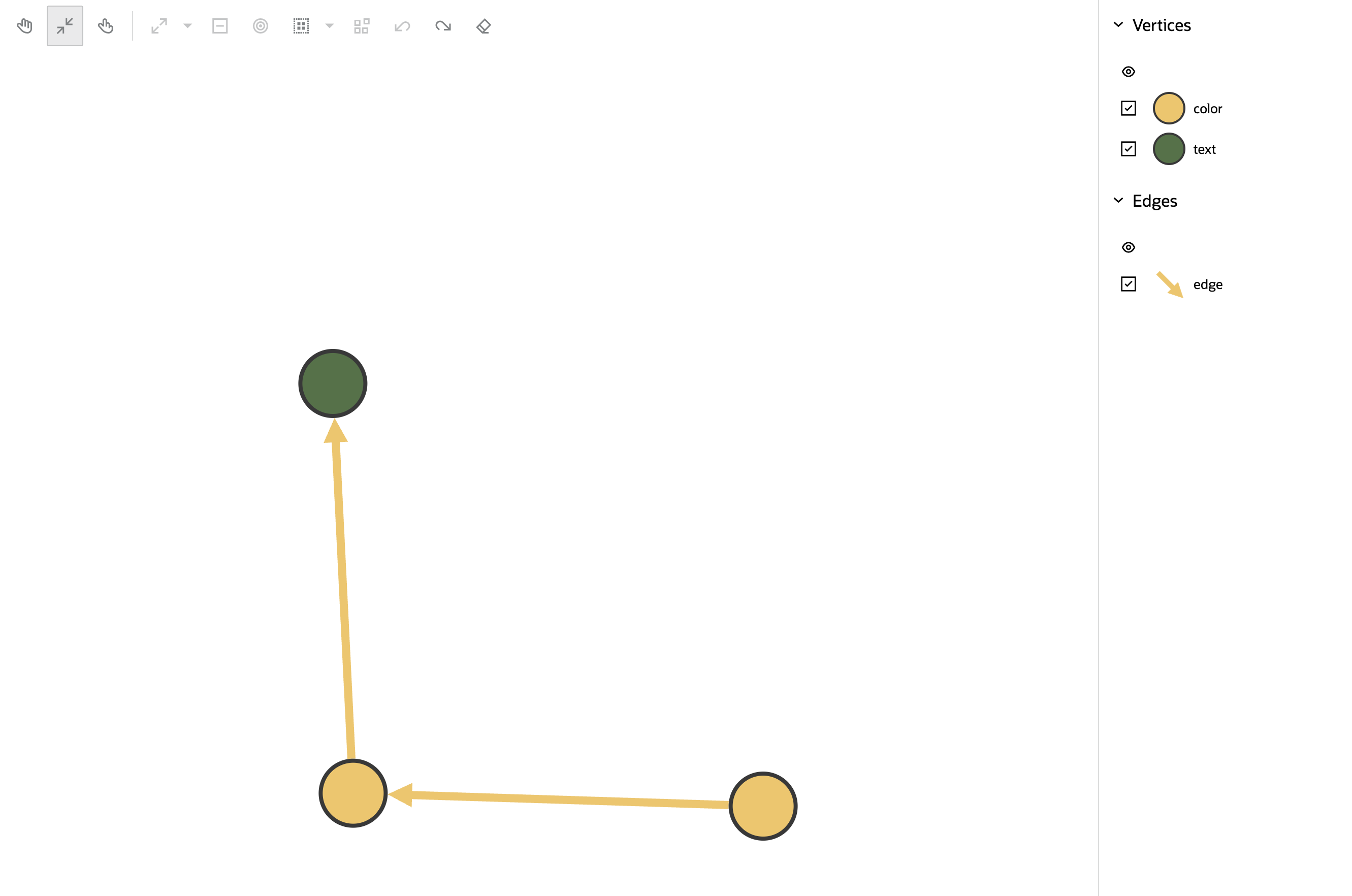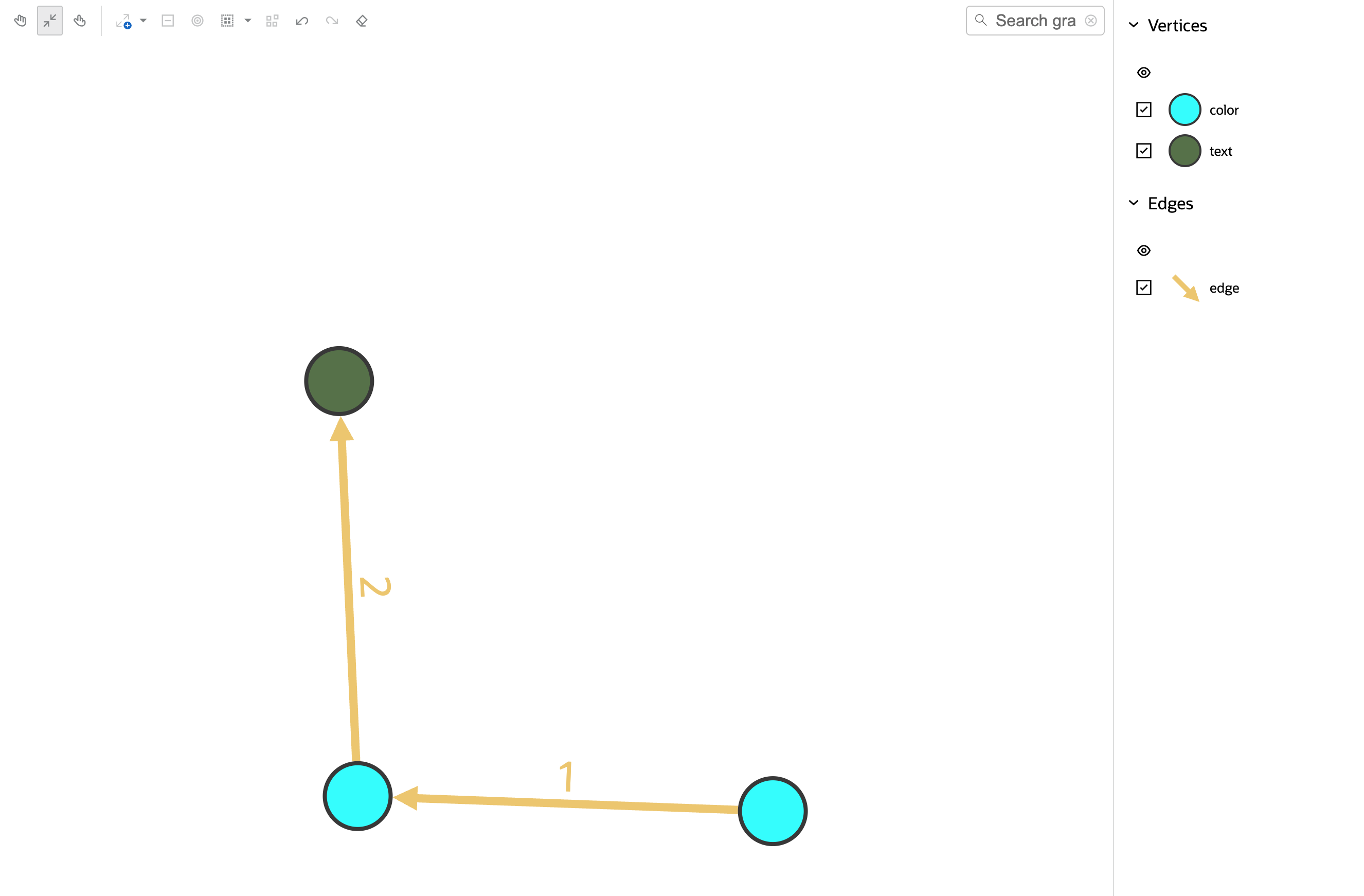4.2 デフォルトの凡例スタイル
頂点またはエッジにラベルが含まれている場合は、それらのラベルに基づいて、対応する凡例エントリが自動的に生成されます。たとえば、次のようにスタイルを設定できます:
const vertices = [
{
id: 1,
properties: {
label: 'blue',
name: 'Hello'
},
labels:['color']
},
{
id: 2,
properties: {
label: 'blue',
name: 'World'
},
labels:['color']
},
{
id: 3,
properties: {
name: 'Some Name'
},
labels:['text']
}
];
const edges = [
{
id: 1,
source: 1,
target: 2,
labels: ['edge']
},
{
id: 2,
source: 2,
target: 3,
labels: ['edge']
}
];
const settings = {baseStyles: {}};
const graphViz = new GraphVisualization({
target: document.body,
props: { data: { vertices, edges }, settings }
});その場合、次に示すように、(前のコードで使用した)頂点およびエッジのラベルから凡例が生成されます:
getCurrentRuleBasedStyles関数は、デフォルト・スタイルとカスタム・スタイルの両方を含む、現在定義されているルールベースのスタイルを返します。次の例に示すように、この関数を使用して、デフォルトのルールベースのスタイルを変更できます:
const graphViz = new GraphVisualization({
target: document.body,
props: { data: { vertices, edges }, settings }
});
const receivedRules = grpahViz.getCurrentRuleBasedStyles();
/*
Here is example of receivedRules. If the rule is default, rule.isDefault is true.
[
{
"_id": "2",
"stylingEnabled": true,
"target": "vertex",
"conditions": {
"operator": "and",
"conditions": [
{
"property": "labels",
"operator": "~",
"value": "color"
}
]
},
"component": "vertex",
"style": {
"color": "#F0CC71"
},
"legendTitle": "color",
"isDefaultRule": true
},
...
]
*/
//Modify receivedRules. Note: Do not edit _id, isDefaultRule, and conditions.
//Modify _id = 2 default rule, color to aqua
receivedRules = [
{
"_id": "2",
"stylingEnabled": true,
"target": "vertex",
"conditions": {
"operator": "and",
"conditions": [
{
"property": "labels",
"operator": "~",
"value": "color"
}
]
},
"component": "vertex",
"style": {
"color": "aqua"
},
"legendTitle": "color",
"isDefaultRule": true
},
...
]
//Assgin the modified received rules to settings.ruleBasedStyles
settings.ruleBasedStyles = recivedRules;
graphViz.$set({setting});更新されたスタイルは、次のように凡例パネルに反映されます:
親トピック: 使用例

